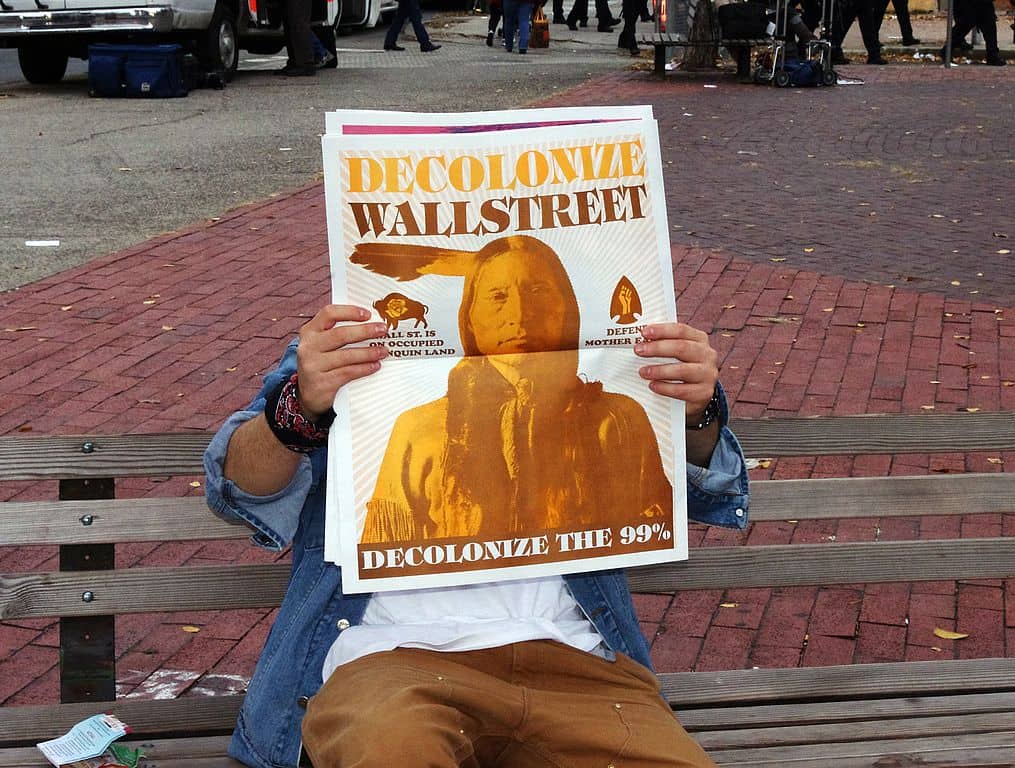The topic of our first issue, “the call to decolonize” is vast in terms of voices, geographies, and literature. We had to make tough choices: either cover one perspective/initiative from a given time and geographic region or try to capture the common ground across languages and regions. We chose the second option: to share the common ground of voices, geographies and literature with our aim: justice for “un monde plus solidaire”.
Our intention is to present that this is not the struggle of particular people in an isolated part of the world. We present the shared struggle, with common criticisms, traits and values, of many people who can be called the “global South”, “racialized communities” and “Indigenous peoples”. At no point do we intend to reduce them to a homogeneous group. They are not. Each one, according to its history, geography and culture, has developed different priorities, circumstances and tools. For example, a large contribution to the call to decolonize is feminist, but we have not been able to make it more explicit or deepen it.
As the voices and geographies we cover are vast, we had to make choices about the concepts we use. We chose the concept of “decolonizing” to emphasize that it is an ongoing process, rather than getting into lengthy debates about the concepts of decolonization and decoloniality.
We have chosen to continue to use concepts that are commonly used in our work such as Indigenous peoples, the global South and the global North. We are aware that this might appear far from the debate of certain perspectives and disciplines that call to decolonize. For example, the struggle in the geographical global South uses the concept of the global South as a global political community that includes the global South (people) in the geographical global North. Meanwhile the struggle in the geographical global North applies to itself and extends the notion of racialized communities. Upon closer look, both concepts, the global South and racialized communities, overlap. The aim of both concepts is to include the struggles of people across geographies and cultures in the common goal of justice for a “monde plus solidaire”.
Both struggles, in the global North and the global South, are about justice. For some, environmental justice is so fundamental that it a priority, while for others, social justice remains paramount. Respect for human rights is the overarching goal of the call to decolonize in Luxembourg, while the calls to decolonize presented here from the global South are inextricably linked to the protection of land and nature. The priorities in the global South and North are the results of particular circumstances. Their voices are essential and complementary. The criticism of colonialism, coloniality, and capitalism remains true, and their resistance critical.
This special edition is ambitious, but also humble as it recognizes its limitations. Our appreciation of the topic remains in construction, as does the call to decolonize itself.






